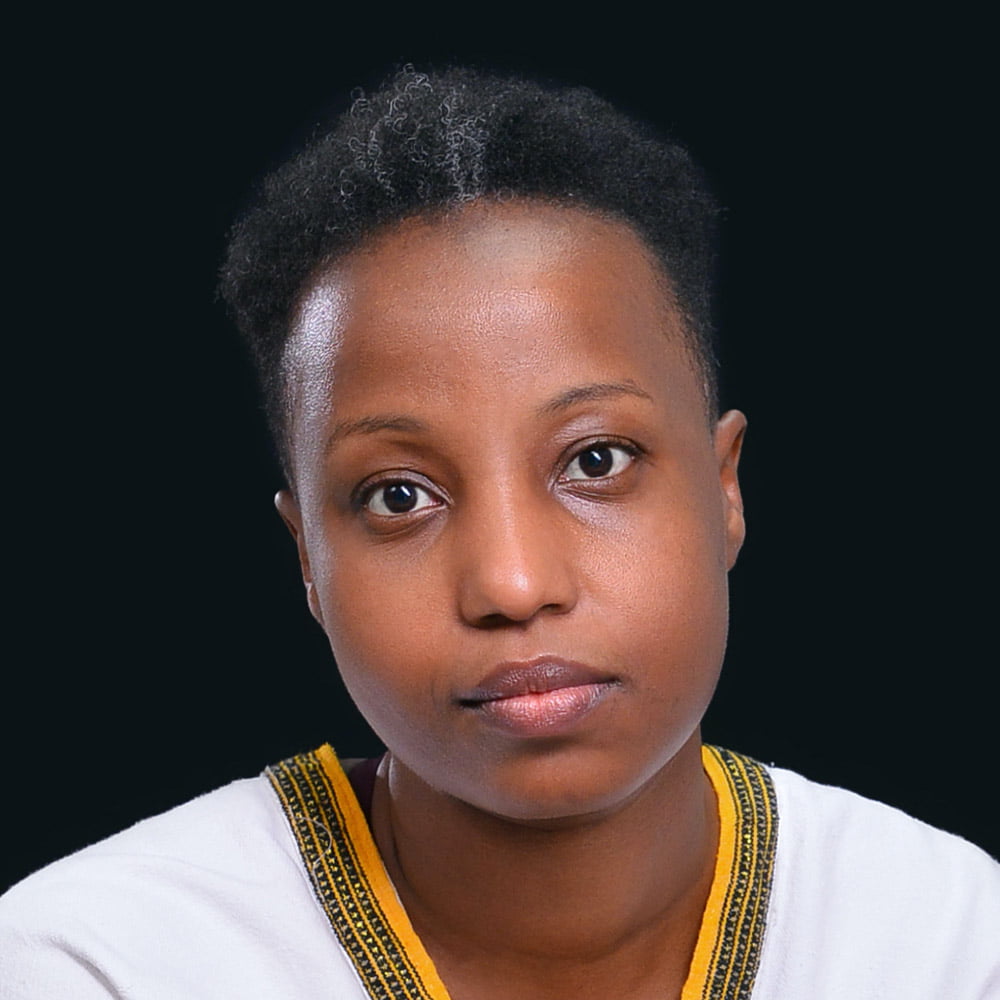Angela Wanjiku Wamai

Angela Wanjiku Wamai studied film at EICTV in Havana (Cuba) and has been working as a film editor in Nairobi for 8 years. She loves to edit documentaries because it allows her to observe human beings. She was recently awarded Best Film Editor by the Women in Film awards-Kenya.
In 2017, she wrote I had to bury Cucu, which premiered at Clermont-Ferrand International Short Film Festival. Her directorial debut Dad, are you OK? premiered at International Female Film Festival, Malmö (Sweden).
In 2022, she completed her feature debut Shimoni (The Pit) which premiered at the Toronto International Film Festival, and has shown at among others IFFR, FESPA- CO, and the Red Sea International Film Festival. The film was awarded the Etalon de Bronze at FESPACO 2023 and the Golden Film Award at the Luxor African Film Festival.
Angela is drawn to stories of broken men and is often exploring the themes of fatherhood, grief and loss in her work.
Filmography
2018 I Had to Bury Cucu; short (script)
2020 Dad, are you ok?; short
2022 Shimoni (The Pit); feature film
DIRECTOR’S STATEMENT
I have always been fascinated by the ability of secrets to paralyze; their ability to consume individuals, families, and societies. SHIMONI was born from this curiosity about the things unspoken and the devastating power of silence. I have also often contemplated the idea of freedom and what it really means to be free. This curiosity led me to Geoffrey’s story-a man who was sexually abused in a society that has refused to recognize the sexual abuse of men and boys. A man who leaves a physical prison but has to try and break out of another prison, one that is unseen and one that has imprisoned him for much longer.
Writing SHIMONI was very difficult because I could not find a way to be hopeful about the story. I researched a lot, and all the research did, was leave me with this feeling of dread because as I observed society all I kept seeing was broken men fighting silence, in silence. The film had to be a tragedy and though this was risky, anything else would be insincere. I knew from the get-go that I wanted the film to be in my mother tongue (Kikuyu) and to be set in a village in rural Kenya. There is a rawness in the way we speak when we are speaking our own languages, it feels like our tongues have been set free. This totally contrasted the idea of silence and a tongue held hostage by secrets. The juxtaposition of the large expanse of land in rural Kenya and the entrapment that the main character feels was also very interesting to me.
Over and above its form as a cinematic piece, I hope SHIMONI sparks a conversation about the sexual abuse of men and boys. I hope that the kind gentleman who was brave enough to share his story of sexual abuse with me will start to see an out, of the prison that has been built around survivors of sexual abuse by stigma and silence.

